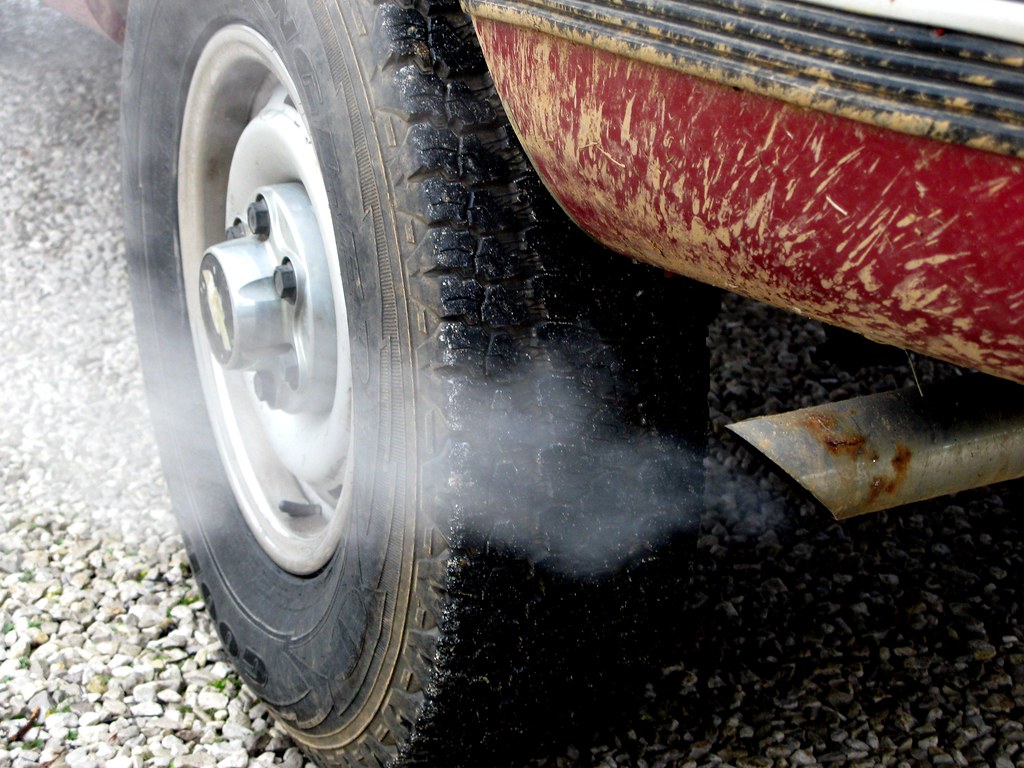Opinion: Stop Idling Your Car!

Photo: Flckr.com (CC BY 2.0).
by Jesse Warren and Alex Franz
What do you do when you’re waiting in your car to pick someone up? Or when you want to warm it up before driving in the winter? If you’re like the majority of America’s driving population, you have it idle. While it may seem like the obvious thing to do, idling your car in these circumstances is actually extremely inefficient and damaging to your car, your health, and the environment.
How big a problem is it?
Though it is small in comparison to other issues, the idling of personal vehicles produces 30 million tons of carbon dioxide per year. In just one day in the U.S., 40,000 tons of carbon monoxide are produced from idling alone, and $13 million on 3.8 million gallons of fuel are wasted. In addition, idling is an issue that ordinary people have the most influence over. Essentially, only you can prevent idling. Even if idling is a small issue, it is still sizable, and it is something you can change.
It’s bad for my car?
There is a myth that idling will save gas and increase car lifespan if done for only a few minutes at a time, as opposed to turning one’s car off and on again. In reality, turning a car off and on uses about the same amount of fuel as idling for just ten seconds. Idling is only beneficial for cars that don’t have fuel injectors in them, but almost all cars do. Instead of idling one’s car to warm it up, it is recommended that you instead drive slowly after at first, avoiding any fast accelerations. Many people believe that they need to idle in order to allow the oil to get everywhere before driving; however, modern cars don’t need to warm up for the oil to work.
Why is it a problem?
You may wonder why idling happens when there are laws prohibiting it. The issue is these laws aren’t well known and they are extremely difficult to enforce. In Massachusetts the law states that you can’t idle for more than five minutes, but the only way to enforce this is to watch the vehicle for the five minutes, which is completely impractical. It is up to each of us to follow this law, for the sake of our cars, the environment, and each other, and maybe even impose stricter rules upon ourselves, three minutes instead of five, for example.
As cars idle, they let out exhaust fumes which contain benzene, formaldehyde, and acetaldehyde. Children exposed to these chemicals have an increased risk of developing Asthma and other respiratory problems. Children are also more at risk because they are shorter, and thus closer to the exhaust pipes. In addition, idling is very common in areas where children are at for long periods of time. One of these locations is elementary school parking lots, where parents coming to drop off or pick up their children often idle while waiting in line.
What can you do about it?
One can’t be expected to not idle their car at all; it is practically necessary while waiting at a traffic light or in other traffic without a hybrid or electric vehicle. However, in most other scenarios, idling is completely unnecessary. Remember, idling for just ten seconds uses as much fuel as turning your car off and on. In this battle, every little bit counts.
Jesse Warren and Alex Franz are seniors at Amherst Regional High School and composed this essay as part of the school’s civic action project. Warren is a member of Sunrise Amherst.

Great letter, Jesse and Alex!
One comment about CO production: cold internal combustion engines produce a much higher ratio of CO to CO2 than warm engines, regardless of whether the vehicle is idling or moving.
Of course, walking or biking produces virtually no CO, and only a bit of CO2, whether warm or cold 😉 !
I believe that, years ago, Mr. Kusner and I both voted enthusiastically in Amherst Town Meeting for an anti-idling bylaw here in Amherst, that set a reasonable limit on how long anyone could leave their vehicle idling. So the prohibition was seconded years ago by our former town assembly. I have since tried to enforce (or underscore the existence of) the bylaw only once: at the old video store down on College Street next to Kelly’s. I spoke to a customer about his car, and nearly got my head taken off. He angrily said that he was keeping his dog warm. I too am thankful to Jesse and Alex for bringing this sore, but extremely vital subject up again for some public contemplation as we enter the winter months.
Yes, I’m happy to acknowledge that Mr. Morse and I actually do agree on many important things.